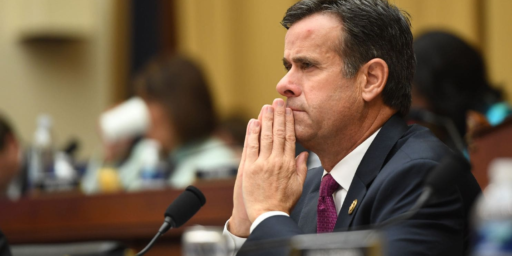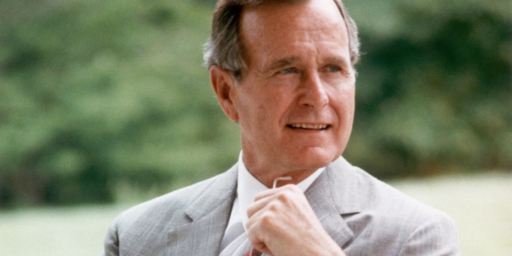Mideast Strides Lift Bush, But Challenges Remain
Peter Baker has an “Analysis” piece entitled, “Mideast Strides Lift Bush, But Challenges Remain.” It’s another in what’s rapidly becoming a long series of “Bush was right but let’s not get carried away” pieces.
A powerful confluence of events in the Middle East in recent weeks has infused President Bush’s drive to spread democracy with a burst of momentum, according to supporters and critics alike, and the president now faces the challenge of figuring out how to capitalize on it in a region long resistant to change. Successful elections in Iraq and the Palestinian territories in January have been followed by tentative changes in Egypt, Qatar and Saudi Arabia and a popular street uprising in Lebanon that toppled an unpopular government. With the encouragement of the American president, reformers across the region are applying escalating pressure on regimes to loosen their grip over autocratic societies.
The rapid pace of developments has surprised even Bush advisers and silenced or even converted some skeptics in Washington less than two months after the president opened his second term with an inaugural address setting the goal of “ending tyranny in our world.” As he prepares to give another major speech today to mark the progress, Bush has been in a buoyant mood, aides said, seeing the recent moves as vindicating his expansive vision. “He feels validation,” said one aide.
How much the president influenced events driven by indigenous forces on the ground remains a point of debate here and in the region. Some diplomats, analysts and intelligence officers with long experience in the region worry that the Bush team is celebrating too soon and overestimating its ability to steer the change it is helping to set loose. Reforms have been announced in the Middle East in the past only to prove hollow in reality. And the U.S. government has rarely built the sort of sustained effort that many believe will be required to ensure that genuine change takes root. “What’s happening in the Middle East is both hopeful and precarious,” said Samuel R. “Sandy” Berger, who was national security adviser to President Bill Clinton. Homegrown pressure for change combined with the purple-fingered success of the Iraqi elections “have raised the heartbeat of reform in the region. It’s still a very tenuous situation. There’s obviously both hope and danger.”
Obviously.





